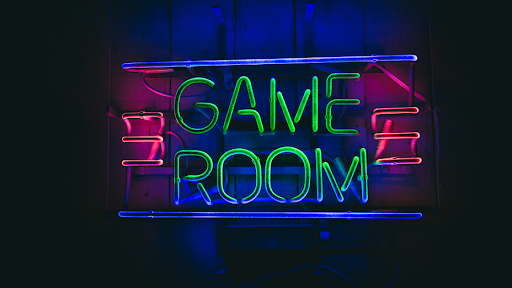
When Pong and Space Fighters were popular, gaming was quite different now. Over the past few decades, gaming has evolved into a cultural phenomenon with a massive following. With advancements in technology, the gaming industry has been able to create immersive and engaging experiences that have captured the hearts and minds of millions of people worldwide. In this article, we will take an in-depth look at the evolution of gamers and gaming culture, from the early days of gaming to the present day.
The Early Days of Gaming
The history of gaming can be traced back to the 1950s, when computer scientists began developing simple games as part of their research. The first commercially successful game was Pong, which was released in 1972. Pong was a simple game that consisted of two paddles and a ball, but it was a massive hit and helped kickstart the gaming industry.
The nineties through late 1980s: The Peak of the Video Game Era
The 1980s and 1990s are considered by many to be the golden age of gaming. During this time, the gaming industry experienced explosive growth, and gaming consoles like the Atari 2600 and the Nintendo Entertainment System (NES) became household names. Some of the most iconic games of all time were released during this era, including Super Mario Bros., The Legend of Zelda, and Street Fighter II.
The Rise of Online Gaming
The late 1990s and early 2000s saw the rise of online gaming, which allowed gamers to play against each other over the internet. Games like Quake III Arena and Counter-Strike became hugely popular and paved the way for the rise of esports.
Esports and Competitive Gaming
The word “esports” is frequently employed to refer to multiplayer gameplay. The rise of esports has been one of the biggest developments in gaming culture over the past decade. Major tournaments like the League of Legends World Championship and The International Dota 2 Championship now offer multi-million dollar prize pools, and professional gamers have become celebrities in their own right.
The Impact of Mobile Gaming
The rise of smartphones and tablets has had a massive impact on the gaming industry. Mobile gaming has become one of the most popular forms of gaming, with millions of people playing games on their smartphones every day. Games like Candy Crush and Angry Birds have become household names and have helped to bring gaming to a wider audience.
Virtual Reality and the Future of Gaming
A technique called VR technology has the ability to completely change the video game business. VR headsets like the Oculus Rift and the HTC Vive allow gamers to immerse themselves in a virtual world and experience games in a way that was previously impossible. As VR technology continues to advance, it is likely that we will see more and more games that take advantage of this technology.
The Evolution of Gaming Culture
Gaming culture has evolved alongside the gaming industry. In the early days of gaming, gamers were often seen as social outcasts, but today gaming has become a mainstream hobby that is enjoyed by people from all walks of life. Gaming has also become a social activity, with online gaming and esports bringing gamers together from all over the world.
Recently, the popular battle royale game Fortnite has faced controversy over an XP glitch that has allowed some players to gain an unfair advantage. The glitch allowed players to earn more experience points than intended, allowing them to level up faster and unlock rewards quicker than others. While some players have taken advantage of this glitch, others have spoken out against it, arguing that it undermines the integrity of the game and ruins the experience for others. Epic Games, the developer of Fortnite, has since released a patch to fix the XP glitch Fortnite and has stated that they will take action against players who have exploited it. The incident highlights the importance of fair play in gaming and the need for developers to actively monitor and address any issues that may arise.
Another recent glitch that has caused controversy in the gaming world is the DMZ money glitch in the game Grand Theft Auto Online, which allowed players to duplicate money in the game and accumulate vast amounts of virtual wealth. This glitch caused an uproar among players, with many calling for the glitch to be fixed and for those who exploited it to be punished. The incident once again highlights the importance of maintaining fairness in gaming and the need for developers to quickly address any glitches or exploits that may arise.
The Future of Gaming
The future of gaming is bright, with new technologies like VR and augmented reality (AR) poised to transform the gaming industry. We are also likely to see more and more games that focus on social and community-driven experiences. As the gaming industry continues to grow and evolve, one thing is clear: gaming is here to stay. Overall, the evolution of gamers and gaming culture has been a dynamic and transformative process, and with the continued advancement of technology, we can expect gaming to remain a major force in shaping entertainment and culture for years to come.
Concluding Remarks
From the beginnings of Pong, video games have advanced significantly. From the golden age of gaming to the rise of online gaming, esports, and mobile gaming. In conclusion, the evolution of gamers and gaming culture has been a remarkable journey that has been shaped by technological advancements and changing social attitudes towards gaming. The once-niche hobby of gaming has transformed into a massive cultural phenomenon that spans across generations, cultures, and borders.
As the gaming industry continues to innovate and push boundaries, we can expect to see even more exciting and immersive experiences that blur the line between the real and virtual world. Whether you are a casual or hardcore gamer, the future of gaming promises to offer something for everyone.

